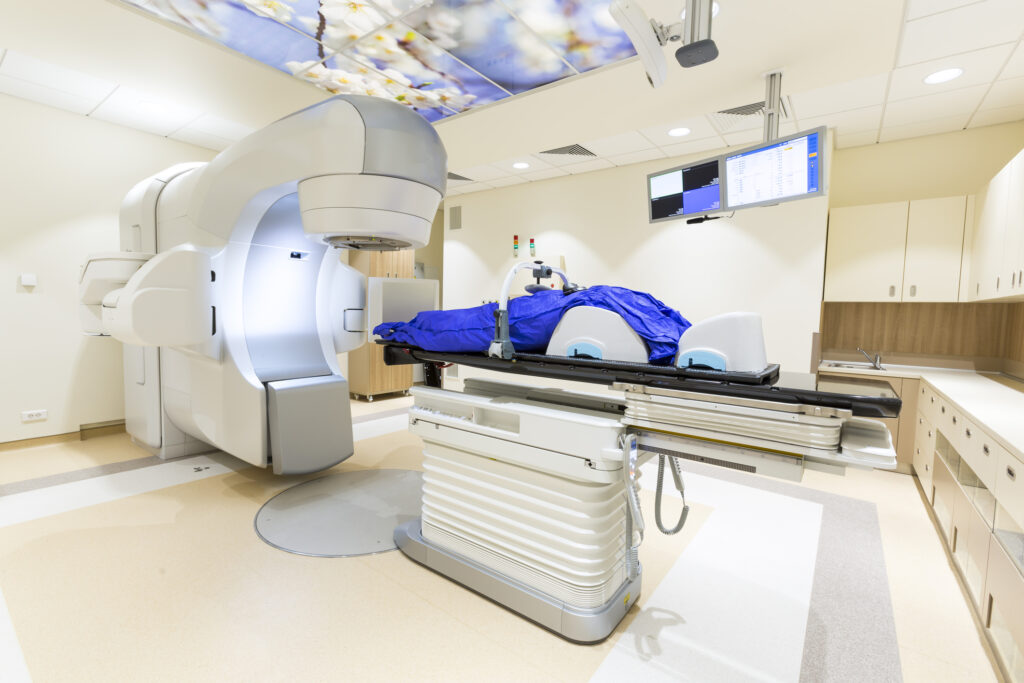Radiation therapy, while an effective treatment for many cancers, can be physically and emotionally challenging for patients.
As healthcare professionals, family members, or caregivers, providing the right support during this journey is crucial. From managing side effects to offering emotional encouragement, understanding how to best assist patients undergoing radiation therapy is crucial. This support can significantly impact their treatment experience and outcomes.
In this article, we will explore practical strategies for supporting radiation therapy patients.
Understanding Radiation Therapy
Radiation therapy represents one of modern medicine’s primary weapons against cancer. This therapeutic approach leverages powerful energy beams, typically X-rays or protons, to target and destroy cancer cells. The technology has evolved significantly, now offering remarkable precision in targeting malignant tissue while minimizing exposure to surrounding healthy areas.
The fundamental mechanism of radiation therapy involves disrupting cellular DNA, which interferes with cancer cells’ ability to multiply and survive. While this process can affect healthy cells, normal tissue typically recovers more effectively than cancer cells. This makes the treatment selectively destructive to malignant growth.
Today, radiation therapy plays a vital role in cancer care. As per Mayo Clinic, more than 50% of cancer patients receive it during their treatment journey. Its applications extend beyond cancer treatment, proving useful in managing certain benign tumors and other non-cancerous conditions.
Recent research published in ScienceDaily has highlighted significant advances in radiation delivery methods. In 2024, following an extensive clinical investigation by UCLA Health Jonsson Comprehensive Cancer Center, MRI-guided radiation therapy demonstrated superior outcomes in prostate cancer treatment.
This innovative approach showed marked improvements in preserving patient quality of life and reducing treatment-related complications compared to traditional CT-guided methods.
Tips to Support Patients Undergoing Radiation Therapy
Supporting Physical Recovery During Treatment
Radiation therapy often presents challenging side effects that require careful management to ensure patients maintain their quality of life during treatment. Fatigue is one of the most common side effects, disrupting daily routines and energy levels.
Encouraging rest and naps while maintaining a consistent sleep schedule can help combat this. Offering assistance with household tasks or errands can also alleviate the burden of fatigue.
Nausea, another common side effect, can make eating difficult but can be alleviated with strategic dietary choices.
As suggested by experts like Whitridge, medications specifically prescribed to manage nausea should be used appropriately for daytime or nighttime relief. As per UChicago Medicine, small, frequent meals are often recommended, as an empty stomach can worsen nausea symptoms. Ginger tea, highlighted by another expert, reduces nausea and helps with hydration.
Skin irritation is another frequent issue, often occurring in the treatment area. This can be managed by using gentle, fragrance-free moisturizers and avoiding tight clothing over sensitive areas. Additionally, keeping the skin clean and dry helps prevent discomfort and infections.
Seeking Guidance from Medical Professionals
During radiation therapy, patients often rely heavily on the support of healthcare professionals. Nursing staff, in particular, play a crucial role in managing treatment-related challenges. These qualified professionals bring extensive expertise in addressing common side effects that accompany radiation treatments.
Nursing professionals excel at providing tailored solutions for patients experiencing radiation therapy side effects. They offer expert guidance on skin care management for radiation-treated areas, ensure proper medication administration, and share valuable strategies for minimizing discomfort.
The scope of nursing support encompasses both clinical and emotional aspects of care. Whether holding a Bachelor’s degree (BSN), completing ABSN programs, or practicing with an associate’s degree, these professionals are well-qualified to provide comprehensive support.
The evolution of healthcare has expanded nursing roles into telehealth services, where they perform many traditional nursing duties through virtual platforms.
Telehealth nursing responsibilities include conducting digital patient assessments, tracking vital signs through technology, maintaining electronic health records, and ensuring patient privacy compliance.
As per Online ABSN Programs, these professionals provide vital emotional support and monitor treatment progress. Additionally, they collaborate with other medical professionals to guarantee comprehensive continuity of care.
Create a Supportive Environment
A comforting home environment plays a key role in a patient’s recovery. It fosters motivation and emotional well-being. Here are some tips to create a supportive space:
- Declutter to minimize stress and promote calmness.
- Add comforting elements like soft lighting, cozy blankets, and calming scents.
- Promote open communication among family members to ensure the patient feels heard and supported.
The Role of Peer Support Groups and Community
Peer support groups can provide emotional relief by connecting patients with others who understand their experiences. These groups offer several benefits:
- A sense of belonging, reducing feelings of isolation.
- The sharing of practical tips and coping strategies.
- Opportunities to celebrate milestones together.
To find these groups, check with local hospitals, online forums, or cancer support organizations like the American Cancer Society.
Technologies and Apps That Aid Patients
Technology greatly enhances patient care by offering tools for every stage of their healthcare journey. Health tracking apps help monitor symptoms while scheduling apps ensure treatment appointments are not missed. Meditation apps like Headspace or Calm provide stress-relief exercises with guided sessions focused on mindfulness.
A therapist used the meditation feature by Headspace, which focuses on breath and body awareness, and another that encourages setting daily goals. As per Verywell Mind, sessions range from brief 4-minute meditations to more extensive 30-minute ones, with exercises requiring little effort beyond listening.
Some sessions use visual prompts like a pulsing circle to guide breath control, while others feature soothing visuals, such as nature scenes. Most meditations last under 10 minutes, which is ideal for those with tight schedules.
Though longer sessions may be more challenging to incorporate, shorter bursts throughout the day allow for quick relaxation. The app also offers diverse meditation styles for slowing down, increasing body awareness, or aiding sleep, ensuring a fresh experience without monotony.
FAQs
What is the new treatment for radiotherapy?
A: A sophisticated type of radiation called proton beam therapy (PBT) substitutes high-energy proton beams for conventional X-rays. Protons, as opposed to X-rays, halt at the tumor to provide targeted treatment with the least amount of tissue damage possible. This precision makes PBT especially beneficial for certain cancers, reducing side effects and improving outcomes.
What should you avoid eating during radiotherapy?
A: During radiotherapy, it’s best to have a soft or liquid diet if swallowing is difficult. Avoid alcohol as it can worsen a sore mouth or sensitive digestion. Spicy foods should also be avoided if your mouth or throat is sore. Consult your radiotherapy team for personalized dietary advice.
Can you live a normal life with radiotherapy?
A: Many people can maintain a relatively normal life during the early stages of radiotherapy. However, as treatment progresses, fatigue and weakness may develop. After completing radiotherapy, recovery can take weeks or months, depending on the individual. Gradual rest and self-care can help restore energy and well-being over time.
Supporting patients through radiation therapy extends beyond managing physical symptoms or providing practical assistance. It represents a fundamental shift in how we approach patient care – recognizing that healing encompasses the whole person, not just the treated condition.
As medical technology advances, we must remember that compassionate human connection remains irreplaceable.
The most effective support combines cutting-edge medical care with empathetic understanding. This creates a foundation where patients feel empowered, understood, and never alone in their journey.
By implementing these supportive strategies, we improve treatment outcomes and honor the resilience of those facing one of life’s most challenging experiences.
Disclaimer
The information provided in this article is intended for general educational and informational purposes only. It is not a substitute for professional medical advice, diagnosis, or treatment. Always seek the guidance of qualified healthcare professionals regarding any medical condition or treatment. The views expressed in this article reflect the interpretations of Open Medscience and are not intended to replace the recommendations of your medical team. While every effort has been made to ensure the accuracy of the content at the time of publication, Open Medscience does not guarantee the completeness or timeliness of the information provided. Reliance on any information in this article is solely at your own risk.




